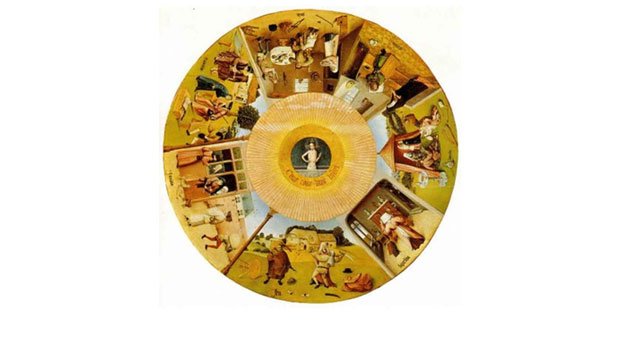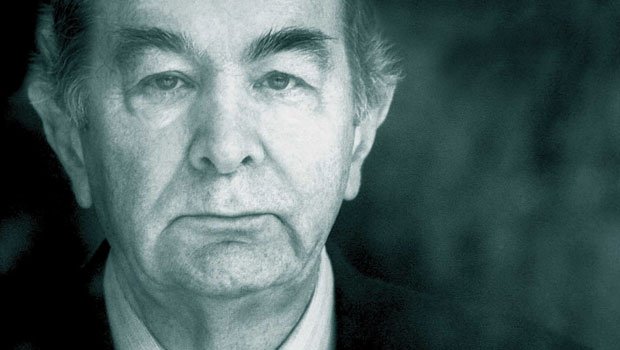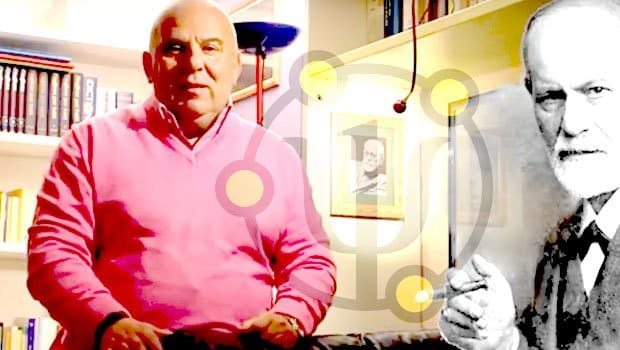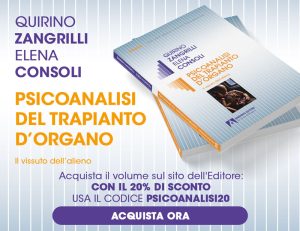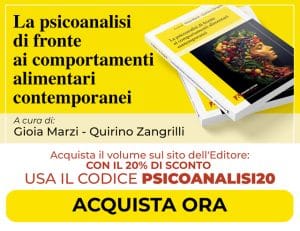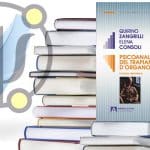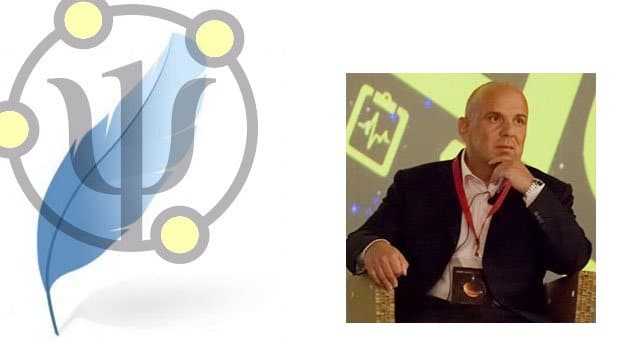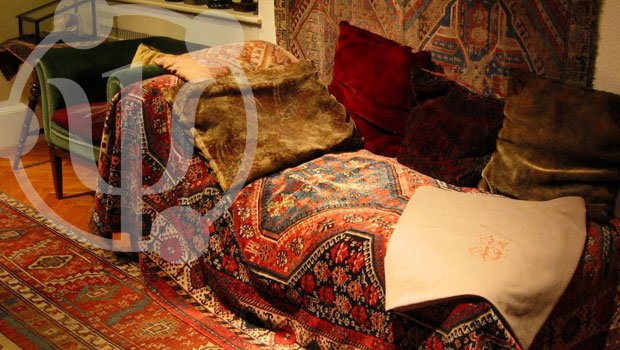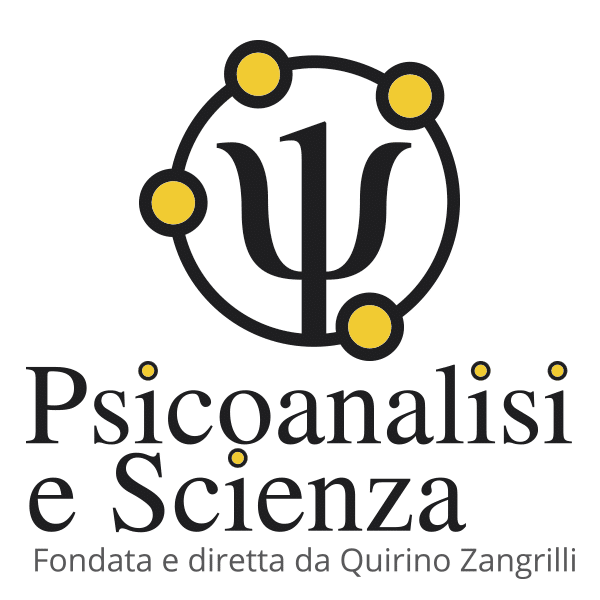Murderers, rapists, torturers and serial killers are the new television stars. To them is owed an attention, a solicitude, a respectful and affable fondness which many journalists or television presenters kindly dispense.
Furthermore, an administrative memorandum must exist which obliges dull correspondents (who seem to be employed only on condition that they have argued with the detested conjunctives and conditionals) to ask the strict relatives of defenceless victims of incarnated demons of the mastery-destruction drive: “Do you forgive your daughter’s slaughterer?”.
Every time I pay my television licence fee, the idea that it will contribute to paying managers who, not only do not oblige those who should know the consecutio temporum (the sequence of tenses) perfectly well, to respect it, neither do they find the time or manner to require a minimum of decency from their employees.
The Italian television, both public and private, has become an incubator of delinquent contents, a patronage of mediocrity and voyeurism.
For such a phenomenon to exist, it is necessary that in a certain group of people the percentage of perverts becomes the majority.
Some days ago I was listening to the participating concern for the ‘sad destiny’ of Erika (she ferociously killed her mother and her young brother) who (what a pity!) on reaching her twenty-first birthday, would be transferred from the youth detention centre to a prison for adults; obviously, not even a single word was mentioned, for the victims.
In my article “The Lost Son” I have attempted to clarify the unconscious motivations of the “conation to forgiveness”.
Here, I would like to add some brief considerations.
Freud showed us, scandalising the priggish people of his time, how the aggressiveness is a universal disposition of the human psyche and how every individual has within him the germs of violence and murder.
The human society, on the other hand, founds itself upon the senses of guilt of the primordial Parricide, upon the horror that the sons felt in front of the mortal remains of the murdered father.
“Civilisation dominates the dangerous aggression desire of the individual weakening it, disarming it and keeping it guarded from an instance within the individual’s self, like a garrison in a conquered city”. 1
Freud demonstrates how the feeling of guilt can be originated by two sources: from the fear that arouses the authority (firstly parental and then of the social order), and from the successive fear which arouses the Super-Ego.
The first source obliges us to renounce the drive satisfaction. But as it is not possible to hide the persistence of prohibited desires from the super-ego, the search for punishment is structured. The severity of the super-ego replaces that of the parents. The Master reminds us that, because civilisation obeys to an internal erotic pressure finalised in uniting human beings into a cohesive mass, it can only reach this aim through a growing reinforcement of the sense of guilt.
If this is the process which maintains civilisation, we can easily understand how, in a historical phase in which finding a parent who behaves as a true Father is an absolute rarity, and the total impunity for the crimes committed is perceived, a break-up of the human civilisation can truly be risked.
A degenerate variant of the social body, after having taken over the mass-media, seems to want to consciously condition the common feeling, eliminating the sentiments of ‘pietas’ towards the victims.
On the basis of an equivocal and delirious egalitarianism incarnated in the slogan “God Save Cain”, the inclination to offend, even though living in each one of us, is completely denied in these people: by projection the familiarity of the aggressive impulses is recognised in the executioner, towards who, a powerful unconscious attraction is triggered.
It is only due to this phenomenon, or to the total ignorance of the laws which regulate the human psychism, that some judges and psychologists can authorise the freedom of ferocious murderers, to later demonstrate themselves absolutely amazed by the repetition of their crimes.
Only he who has done a profound research on his own psychism, has familiarised himself with his own aggressive-destructive inclinations, has recognised them and hence does not deny them, can demand from himself, and consequently from anyone else, the respect for the rules that humanity has established to build the social structure upon.
A nation in which ferocious murderers, instead of being kept in conditions in which they can no longer harm (since the so-called re-education in the cases of violent murder is pure ideological phantasy founded on the ignorance of a basilar law of the psychism, called ‘compulsion to repeat’) find freedom after very few years, is destined to an inevitable break-up.
The only consolation remaining for us is that we can say, conscious of the universal inclination to commit crimes, a society can only have a tomorrow with the certainty of the punishment and with the unconditional protection of the victims.
Written by: Quirino Zangrilli © Copyright
Translated by Linda De Nardo
Notes:
E’ autore di 74 tra libri e pubblicazioni scientifiche. Ha partecipato in qualità di relatore o di presidente di sessione a numerosi Convegni scientifici nazionali ed internazionali.
Il suo libro “La vita: involucro vuoto”, pubblicato da Borla nel 1993, è in adozione dal 1994 presso la Cattedra di Psicologia Dinamica dell’Università di Torino.
Nel 1994 gli viene assegnato il “Premio Nazionale Ciociaria per la Medicina”.
E’ l’ideatore e fondatore della rivista multimediale “Psicoanalisi e Scienza”, la più seguita rivista di psicoanalisi on line al mondo in lingua italiana (Fonte: Entireweb, Alexa, Google, Virgilio, Arianna., etc.). Nel 2012 partecipa come Relatore alla Rassegna Scientifica di BergamoScienza.
Nel 2013 espone i suoi studi sull’nterazione materno-fetale nella Sessione Speciale dell’ XI Congresso Mondiale di Medicina Perinatale a Mosca con la relazione “Intrauterine Imprinting”.
Nel 2024 riceve il Premio Accademico d’Onore della Accademia Culturale Internazionale Cartagine 2.0.
Nel 2024 docente ad Almaty – Kazakhstan presso il workshop di psicoanalisi sul tema della violenza, promosso dall’Università di psicoanalisi di Mosca in collaborazione con l’Istituto svizzero di micropsicoanalisi.
Nel 2025 pubblica come curatore il libro “LA PSICOANALISI DI FRONTE AI COMPORTAMENTI ALIMENTARI CONTEMPORANEI” presso Armando Editore
Nel 2025 pubblica il libro “PSICOANALISI DEL TRAPIANTO D’ORGANO – IL VISSUTO DELL’ALIENO” presso Armando Editore
Doctor Quirino Zangrilli was born in Fiuggi in 1955. Graduated with honours in Medicine and Surgery in 1980, he practices Psychoanalysis, with intensive method, since 1982.
He is author of 74 scientific pubblications. He has attended as speaker or president of session to many national and international scientific Conventions.
His book “La vita:involucro vuoto” (Life: empty involucre), published by Borla in 1993, has been in use by the Chair of Dynamic Psychology at Turin’s University since 1994.
He is the author and founder of the multimedia review “Psicoanalisi e Scienza” (Psychoanalysis and Science), the most read Italian on line review of psychoanalysis.
In 2012 he participated as a Speaker at the Scientific Festival of BergamoScienza.
In 2013 he illustrated his research on the maternal-fetal interaction in the Special Session of the XI World Congress of Perinatal Medicine in Moscow with his relation “Intrauterine Imprinting”.
He is visiting teacher at Moscow Institute of psychoanalysis and training psychoanalist of Swiss Institute of Micropsychoanalysis.
In 2024 he is a teacher in Almaty – Kazakhstan at the psychoanalysis workshop on the topic of violence, promoted by the Moscow University of Psychoanalysis in collaboration with the Swiss Institute of Micropsychoanalysis.
In 2024 he received the Honorary Academic Award of the Carthage 2.0 International Cultural Academy
In 2025 he published as an editor the book “PSYCHOANALYSIS IN THE FACE OF CONTEMPORARY EATING BEHAVIOURS” at Armando Editore
In 2025 he published the book “PSYCHOANALYSIS OF ORGAN TRANSPLANTATION – THE EXPERIENCE OF THE ALIEN” at Armando Editore
Le Le Docteur Quirino Zangrilli est né à Fiuggi en 1955. Diplômé avec mention en Médecine et Chirurgie en 1980, il pratique la psychanalyse depuis 1982, en utilisant une technique intensive.
Il est l’auteur de 74 livres et publications scientifiques.
Il a participé en tant que conférencier ou président de session à de nombreuses conférences scientifiques nationales et internationales.
Son livre “La vie : enveloppe vide”, publié par Borla en 1993, est adopté depuis 1994 par la Chaire de Psychologie Dynamique de l’Université de Turin. En 1994, il a reçu le “Prix national Ciociaria de médecine”.
Il a conçu et fondé le magazine multimédia “Psicoanalisi e Scienza”, qui est le magazine de psychanalyse en ligne en italien le plus suivi au monde. (Source : Entireweb, Alexa, Google, Virgilio, Arianna., etc.).
En 2012, il a participé en tant que conférencier à la colloque scientifique de BergamoScienza.
En 2013, il a exposé ses études sur l’interaction materno-fœtale lors de la session spéciale du XIe Congrès mondial de médecine périnatale à Moscou avec le rapport “Intrauterine Imprinting”. Il est chargé d’enseignement au cours de spécialisation de trois ans en psychanalyse, psychothérapie psychanalytique et consultation psychanalytique à l’Université de Moscou.
Il est membre didacticien de l’Institut Suisse de Micropsychanalyse et de la Commission pour la Pratique de celui-ci.
En 2024, il enseigne à Almaty – Kazakhstan à l’atelier de psychanalyse sur le thème de la violence, promu par l’Université de Psychanalyse de Moscou en collaboration avec l’Institut Suisse de Micropsychanalyse.
En 2024, il reçoit le Prix Académique Honoraire de l’Académie Culturelle Internationale Carthage 2.0.
En 2025, il publie en tant qu’éditeur le livre « LA PSYCHANALYSE FACE AUX COMPORTEMENTS ALIMENTAIRES CONTEMPORAINS » chez Armando Editore
En 2025, il publie le livre « PSYCHANALYSE DE LA TRANSPLANTATION D’ORGANES – L’EXPÉRIENCE DE L’ÉTRANGER » avec Armando Editore
В 2024 году является преподавателем в Алматы – Казахстан на семинаре по психоанализу на тему насилия, проводимом Московским университетом психоанализа в сотрудничестве со Швейцарским институтом микропсихоанализа.
В 2024 был награжден Почетной академической премией Академии Международной Культуры «Карфаген 2.0».
В 2025 году он опубликовал в качестве редактора книгу «ПСИХОАНАЛИЗ В РАМКАХ СОВРЕМЕННОГО ПИЩЕВОГО ПОВЕДЕНИЯ» в издательстве Armando Editore
В 2025 году он опубликовал книгу «ПСИХОАНАЛИЗ ТРАНСПЛАНТАЦИИ ОРГАНОВ – ОПЫТ ЧУЖОГО» совместно с Армандо Эдиторе





